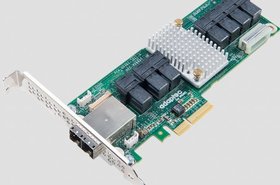For the latest in our DCD>Talks series, we’re tackling the hot-button issue of the 2020s – artificial intelligence, or AI. Everyone has a take, but what does the explosion of AI mean for the data center? DCD’s Emma Brookes spoke to Peter Curtis, founder and CEO of PMC Group, whose Smartwalk tools have changed the way that construction projects, not least of all data centers, are built.
First, on the agenda, Curtis gives us his thoughts on how AI can do at least some of the work required to plug the skills gap that has enveloped the labor market in recent years: “We need to make sure that whatever AI we introduce into this industry, we have regulation, we have the industry coming together to talk about what's needed to protect data and ensure that we're using AI in a safe way.
“AI is a silver lining, but it will be a great tool to bridge the gap between the knowledge that's leaving the industry and new knowledge and new people that are coming into the industry, it is a multitude of tools to help this next generation learn.”
Another example that Curtis cites is the possibilities for training in a hazardous environment, but without the hazards: “You can use virtual reality or augmented reality in a training scenario. Let's see how you react. Let's see how you respond. You can be situationally aware when this event unfolds. This is a great way to introduce AI into the industry to train the next generation of engineers. These are great examples of how we can train next-generation engineers and give them hands-on experience without exposing them to risks.”
Meanwhile, within the operations of the data center, there are opportunities to give robots the smarts to carry out jobs that, not only would a human be less efficient at, but probably wouldn’t want to do in the first place:
“A robot can be armed with infrared scan, ultrasonic listening devices, temperature, sensors, cameras. I'll have a million-square-foot colocation facility, it would take a few people for a shift to be able to accomplish that.”
Curtis goes on to talk about the possibilities of augmenting humans with smart HUD (heads-up display) devices, giving them a font of AI knowledge to deal with complex maintenance: “If we can get a subject matter expert, virtually, in the same place, you can share that great knowledge that's around the world.
“Google Glass is one thing because it allows you to see, visualize, hear, communicate, and collaborate effectively and efficiently, but when you start to roll in AI, maybe it has old operational manuals that it could sift through very rapidly and tell you where you need to be looking.”
If you’d like to find out more about how AI can help with everyday data center operational issues such as KPIs, and whether fear is playing a role in the speed of AI adoption, you can watch the whole DCD>Talk here.
More from PMC
-

DCD>Talks inspiring future talent with Peter Curtis, PMC Group I
DCD's CEO, George Rockett will be joined on the DCD>Talks stage by PMC Group I's CEO, Peter Curtis, about the 'skills gap' challenge facing the mission-critical infrastructure industry
-

-

DCD>Talks Mission Critical with Peter Curtis
George Rockett, CEO is joined by Peter Curtis, CEO, PMC Group I to talk about mission Critical operations.
